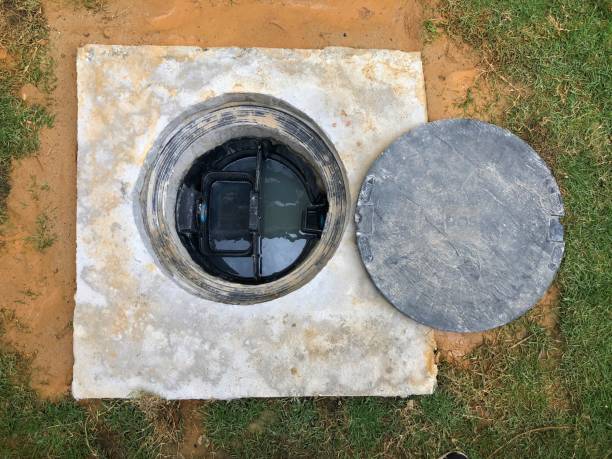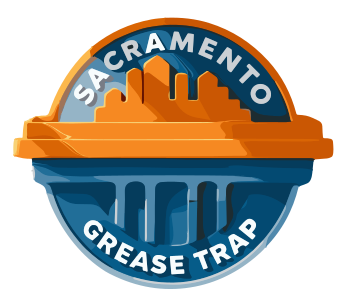Grease Trap Additives: Do They Work or Waste Money?

If your kitchen sinks are slow or the trap smells, you might think a bottle will fix it. Some grease trap additives can tone down odors, yet many only move fats and oils farther down the pipe. Once they cool, they can stick and create bigger problems. Sacramento Greasetrap favors a simpler plan: steady grease trap maintenance, a realistic grease trap maintenance schedule, and a written grease trap maintenance log so you avoid clogs and pass routine checks.
You do not need a shelf of chemicals. Most homes do well with a quick weekly peek inside the lid, a seasonal pump-out, and clean records. If you are wondering how often should grease traps be cleaned, the answer depends on cooking habits and what you see during checks. The steps below make it easy to decide and to stay on track.
Do Grease Trap Additives Work?
Grease trap additives can help with the smell in the short term. The tradeoff is that some formulas break grease apart so it slips past the trap and collects downstream. That can lead to blockages and unpleasant surprises. Local programs lean on regular grease trap inspection, measured cleanouts, and a clear log. If you try a product, confirm it is allowed and use it exactly as directed.
Why Homeowners Reach For Additives
Odors And Slow Sinks
A bad smell or a gurgle usually means the trap is due for service, a gasket needs cleaning, or solids are building up. A bottle might hide the smell, but it does not remove the cause.
Labels vs Real Kitchens
Packaging often promises “digestion” of grease. Real kitchens have cool pipe runs, mixed food scraps, and limited contact time. That is why fancy claims often do not match results. If you want timing you can trust, see this local guide to a grease trap cleaning schedule in Sacramento:
What Additives Do In A Trap
Enzymes, Bacteria, Deodorizers, Solvents
- Enzymes split fats into smaller parts, which can reattach later in cooler pipes.
- Bacteria additives need the right temperature and time to work; homes rarely provide ideal conditions.
- Deodorizers freshen the air but leave fats and solids in place.
- Solvents and emulsifiers thin the grease so it passes the trap, which can create problems farther along.
If drains keep slowing, combine trap service with quality line cleaning. Here’s a primer that pairsgrease trap maintenancewith drain work:
When Products Backfire
If thinned grease cools in the lateral, it sticks like candle wax. That is when homeowners face jetting or emergency calls. This practical guide can help if you are already dealing with backups:
What Local Standards Expect
Programs focus on correct sizing, access, and routine service with documentation. Inspectors look for proof of cleaning and inspection notes, not receipts for chemicals. For a plain-English overview of local expectations, read: Local Grease Trap Cleaning Rules: Avoid Fines & Issues
The Reliable Route: Schedule, Log, Inspection
The 25 Percent Rule
Pump the trap when the combined layer of grease and settled solids reaches about one quarter of the liquid depth. Busy kitchens might hit that point every one to three months. Light-use homes may stretch longer if checks show low buildup. For a simple template, grab the grease trap maintenance log here:
Weekly, Monthly, Seasonal Tasks
Weekly
- Lift the lid safely and note the grease thickness and any food solids.
- Wipe the gasket and check for odors or loose fittings.
- Record what you see in the log.
Monthly
- Clean strainers.
- Check baffles and the flow control device.
- Do a quick grease trap inspection for cracks or wear.
- If levels are rising fast, bring service forward.
Seasonal
- Book a professional pump-out with photos before and after.
- Update your grease trap cleaning schedule based on the report.
- Set the next reminder on your phone or calendar.
Pro tip: Ask for measured grease and solid depths at each visit. Numbers make it easy to right-size your grease management plan.
Using A Maintenance Log
- Keep one page per trap.
- Track date, observations, actions, and next service date.
- Save photos and receipts with the log.
- Store it in the kitchen so anyone can update it.
If you are hiring for the first time, these questions will help you compare providers: Questions to Ask a Grease Trap Cleaning Company
Additives Or Scheduled Pumping: Quick Comparison
Reliability
- Additives: Results vary with temperature and contact time.
- Scheduled pumping: Removes fats and solids you can measure.
Risk
- Additives: May push grease into the line where it can harden.
- Scheduled pumping: Lowers the chance of downstream buildup.
Cost
- Additives: Ongoing purchases without removing the load
- Scheduled pumping: Planned expense, fewer emergencies.
Compliance
- Additives: Rarely accepted as a substitute for service.
- Scheduled pumping: Matches what inspectors expect when logged.
Six Common Myths
Myth 1: Additives “dissolve” grease for good
They often just break it up; it can stick farther down.
Myth 2: A fresh smell means a clean system
Odor control does not equal removal.
Myth 3: Bacterial products replace pumping
You still need inspection, cleaning, and records.
Myth 4: All products work the same
Performance changes with temperature, flow, and time.
Myth 5: Additives prevent fines
Inspectors want service records and a maintenance log.
Myth 6: Bottles are cheaper than service
One urgent call can exceed a year of scheduled cleanouts.
Pro Tips And Watch-Outs
Pro tips
- Scrape plates and wipe pans before washing.
- Keep a small container for cooled oil and put it in the trash.
- Use sink strainers to catch food scraps.
- Keep the lid gasket clean to reduce odors without a grease trap deodorizer.
Watch-outs
- Gurgling, slow drains, or a sulfur smell mean it is time to check the trap.
- Recurring slowdowns after using a product suggest a buildup downstream.
- Missing receipts and notes? Refresh your grease trap maintenance schedule now.
Conclusion: The Simple Choice
Most homes do best with a clean, measured routine and a short checklist. Grease trap additives may help with smell for a while, but they are not a replacement for steady service. Keep a quick log, follow the 25 percent rule, and schedule cleanouts based on what you see. Sacramento Greasetrap can inspect, pump, and document everything so you stay ahead of problems.
What To Do This Week
- Open the lid and record what you see in the log.
- If grease and solids take up about a quarter of the depth, book a pump-out.
- Set a calendar reminder for your next seasonal check.
- Still fighting slow drains? Schedule a visit for a grease trap inspection and drain clean.

Let Us Simplify Your Grease Trap Maintenance.
Proper grease trap maintenance will reduce costly repairs in the future.
.avif)

